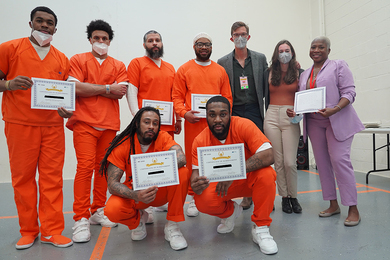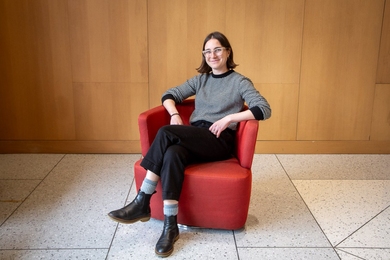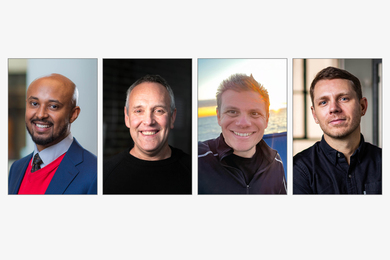Haibo Wang, a first-year fellow in MIT’s System Design and Management (SDM) program, is a biomedical engineer who comes to SDM with a solid technical background and nine years of industry experience. She understands that designing and developing a medical device is only half the battle. There’s still the task of translating it from the lab to patients’ bedsides and integrating it into the overall healthcare system.
Wang, 38, says she learned early in her career that this challenge calls for systems thinking. While working on a team in 2003 at Minrad International, a New York-based biotech firm, she helped develop an image guidance system. Wang says the device was clearly a win-win for patients and doctors because it enhances accuracy, minimizes surgical time and considerably reduces radiation exposure for both patients and medical professionals.
To Wang’s surprise, sociopolitical factors made adoption of the device sluggish. Some hospitals were skeptical of new devices, and some surgeons were reluctant to change their ingrained routines. “This forced me to think about the product as part of a larger system,” Wang says. “Communication breakdowns between designers and medical professionals can kill new medical devices because they have such a long development cycle.”
To broaden her understanding of new product development and integration, Wang considered earning a traditional MBA from MIT or Harvard. However, she chose SDM because its academic program integrates holistic lessons on product development with technical knowledge relevant to her industry. Since enrolling in January, Wang has studied a range of subjects, including system design, technology strategy and IT property laws.
As an undergraduate, Wang sought a broad engineering education. In 1995, she earned her bachelor’s degree from Tianjin University, one of four colleges in China that blended mechanical, optical and electrical engineering. She further expanded her horizons a few years later by earning her master’s in aerospace engineering.
Upon entering the workforce, Wang spent several years at Minrad before becoming a senior systems engineer for Terumo Cardiovascular Systems, a surgical-devices company, where she oversaw development of a blood-monitoring apparatus. “The rewards of the job were amazing,” Wang says. “Sometimes I’d hear people say things like, ‘My cousin survived an open-heart surgery because of your system.’”
In 2011, Wang founded her own company, Agon System Consulting, to help health-care providers develop and improve devices such as anesthesia machines.
After graduating from SDM, Wang plans to continue her biomedical career. However, she’s open to collaborating with colleagues from her cohort on other systems-related projects. “As mid-career technical professionals from a wide range of industries, their breadth of experience is wonderful,” Wang says. “I plan to continue exchanging ideas with my SDM cohort, as well as SDM alumni and faculty long after I leave MIT.”
Wang, 38, says she learned early in her career that this challenge calls for systems thinking. While working on a team in 2003 at Minrad International, a New York-based biotech firm, she helped develop an image guidance system. Wang says the device was clearly a win-win for patients and doctors because it enhances accuracy, minimizes surgical time and considerably reduces radiation exposure for both patients and medical professionals.
To Wang’s surprise, sociopolitical factors made adoption of the device sluggish. Some hospitals were skeptical of new devices, and some surgeons were reluctant to change their ingrained routines. “This forced me to think about the product as part of a larger system,” Wang says. “Communication breakdowns between designers and medical professionals can kill new medical devices because they have such a long development cycle.”
To broaden her understanding of new product development and integration, Wang considered earning a traditional MBA from MIT or Harvard. However, she chose SDM because its academic program integrates holistic lessons on product development with technical knowledge relevant to her industry. Since enrolling in January, Wang has studied a range of subjects, including system design, technology strategy and IT property laws.
As an undergraduate, Wang sought a broad engineering education. In 1995, she earned her bachelor’s degree from Tianjin University, one of four colleges in China that blended mechanical, optical and electrical engineering. She further expanded her horizons a few years later by earning her master’s in aerospace engineering.
Upon entering the workforce, Wang spent several years at Minrad before becoming a senior systems engineer for Terumo Cardiovascular Systems, a surgical-devices company, where she oversaw development of a blood-monitoring apparatus. “The rewards of the job were amazing,” Wang says. “Sometimes I’d hear people say things like, ‘My cousin survived an open-heart surgery because of your system.’”
In 2011, Wang founded her own company, Agon System Consulting, to help health-care providers develop and improve devices such as anesthesia machines.
After graduating from SDM, Wang plans to continue her biomedical career. However, she’s open to collaborating with colleagues from her cohort on other systems-related projects. “As mid-career technical professionals from a wide range of industries, their breadth of experience is wonderful,” Wang says. “I plan to continue exchanging ideas with my SDM cohort, as well as SDM alumni and faculty long after I leave MIT.”






